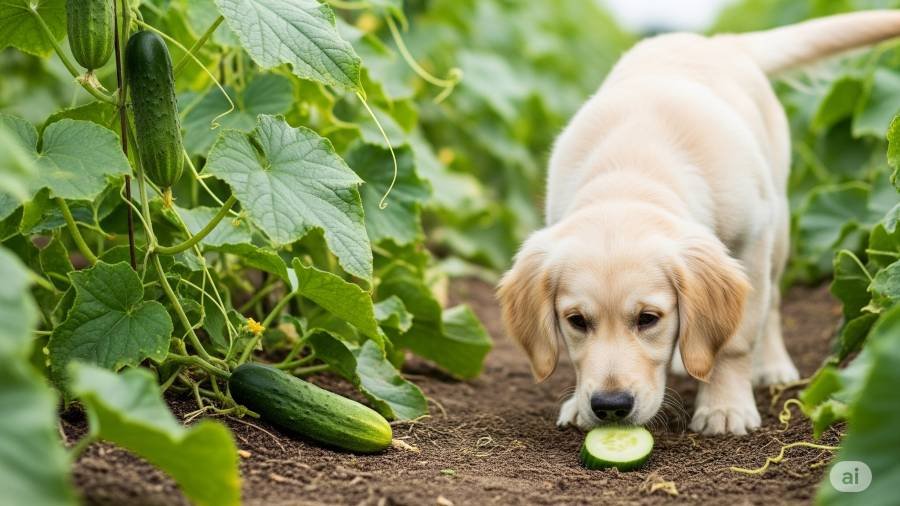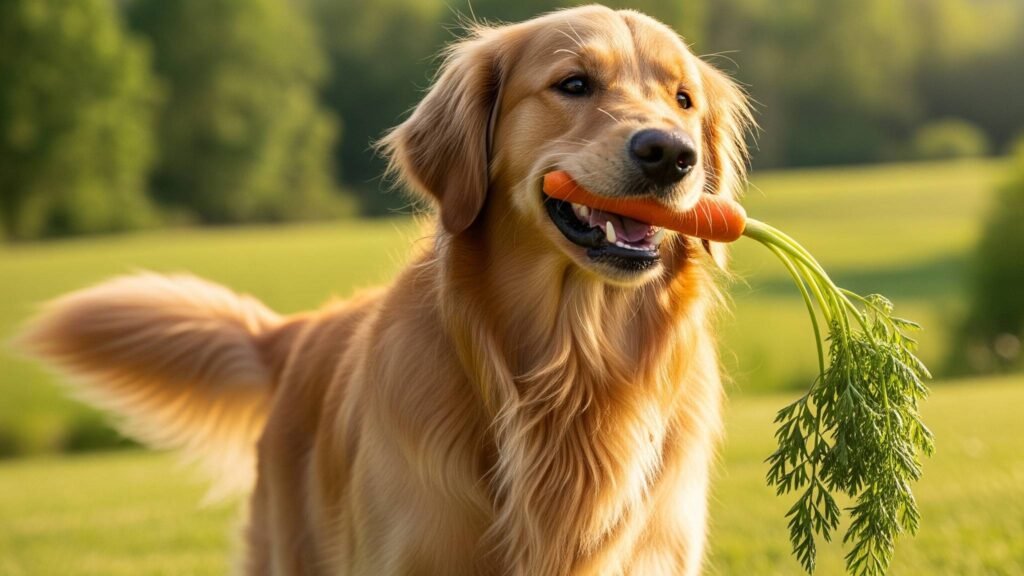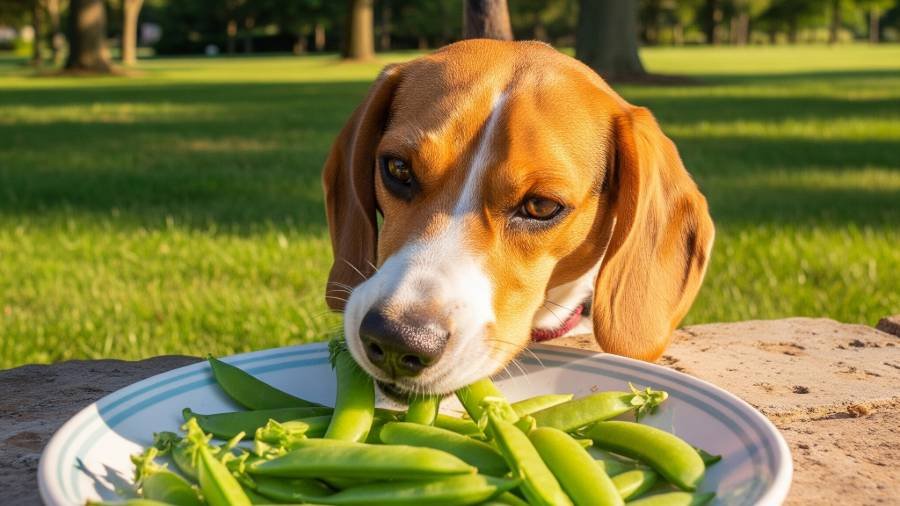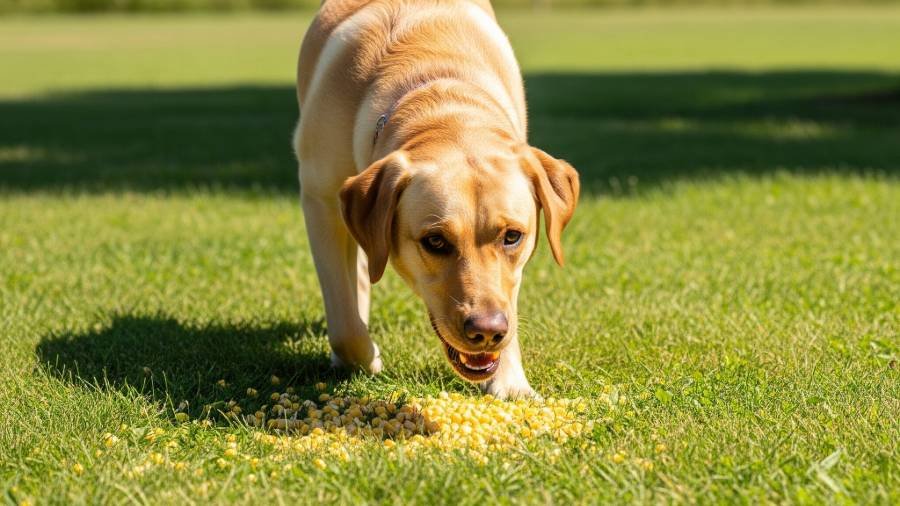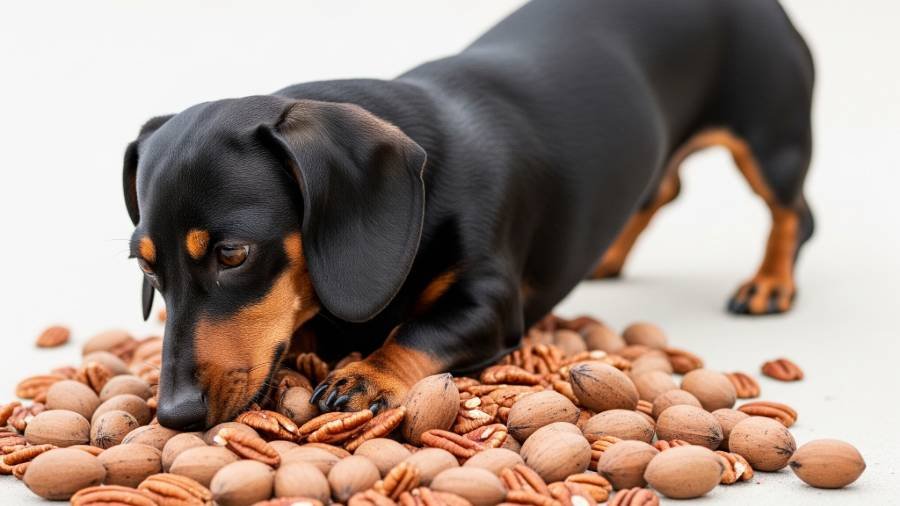Yes, dogs can eat ripe tomatoes in small amounts as a safe treat, but the green parts of the tomato plant and young green tomatoes are bad for dogs and should be avoided.
This article provides a unique, detailed guide on safely share tomatoes with your dog, exploring their benefits, potential risks, and proper feeding practices.

Potential Benefits of Tomatoes for Dogs
When dogs can eat ripe tomatoes in moderation, they offer several advantages that support a dog’s diet:
- Vitamins and Minerals: Ripe tomatoes are a good source of vitamins C and K, plus potassium, supporting immune system health and blood clotting.
- Antioxidants: Lycopene, found in ripe tomatoes, may reduce inflammation and support heart health.
- Hydration: The high water content helps keep dogs hydrated, especially in warm weather.
- Low-Calorie Treat: Tomatoes provide a light snack option, ideal for weight management when fed in small amounts.
- Fiber Content: A small amount of fiber aids digestion, promoting a healthy gastrointestinal system.
These benefits make tomatoes good for dogs when you feed your dog ripe, red tomatoes sparingly. For more on safe veggies, explore what vegetables can dogs eat.
Risks and Dangers of Tomatoes for Dogs
While ripe tomatoes are safe, certain parts and conditions pose risks that make them unsafe if not managed:
- Nightshade Family Toxicity: Green parts like stems and leaves, and young green tomatoes, contain solanine and tomatine, which are toxic to dogs and can cause gastrointestinal upset or worse.
- Allergic Reaction: Though rare, some dogs may experience itching, swelling, or digestive issues as an allergic reaction to tomatoes.
- Large Amount Risks: Overfeeding ripe tomatoes can lead to acid reflux, diarrhea, or loss of coordination due to natural acidity.
- Choking Hazard: Whole tomatoes or large chunks can pose a choking risk, especially for small dogs.
- Difficulty Breathing: In severe cases of solanine poisoning from green parts, dogs may experience respiratory distress.
- Pesticide Exposure: Tomatoes from tomato plants treated with chemicals may carry residues, requiring thorough washing.
How to Safely Feed Tomatoes to Dogs
To ensure tomatoes are a safe treat, follow these guidelines when you feed your dog tomatoes:
- Use Ripe Tomatoes: Only offer fully ripened, red tomatoes, avoiding green parts, stems and leaves, or unripe fruit.
- Wash Thoroughly: Rinse tomatoes under water to remove dirt, pesticides, or residues from grow tomatoes practices.
- Remove Green Parts: Cut away any green areas, stems, or leaves to eliminate toxicity risks.
- Cut into Small Pieces: Chop tomatoes into bite-sized portions to reduce choking hazard, especially for small dogs.
- Feed in Small Amounts: Offer a small portion (e.g., 1-2 teaspoons for small dogs, up to 1-2 tablespoons for larger breeds) once or twice a week, keeping treats under 10% of a dog’s daily intake.
- Monitor Reactions: Introduce tomatoes gradually and watch for gastrointestinal upset or allergic reaction over 24-48 hours. Consult a vet if issues arise.
- Consult a Vet: Seek veterinary advice before adding tomatoes, especially for dogs with sensitive stomachs or a history of allergies.
Signs of Tomato-Related Issues
If a dog eats tomatoes improperly or reacts poorly, look for these warning signs:
- Vomiting, diarrhea, or reduced appetite (possible gastrointestinal upset from overeating or green parts)
- Lethargy, tremors, or loss of coordination (indicators of solanine toxicity)
- Difficulty breathing or rapid heartbeat (severe poisoning from nightshade family compounds)
- Excessive scratching or swelling (rare allergic reaction)
- Abdominal pain or bloating (digestive irritation)
If these signs appear, stop feeding tomatoes and contact a veterinarian immediately. Severe cases, such as solanine poisoning, require urgent care.
Expert Opinions
Veterinary experts, including the American Society for the Prevention of Cruelty to Animals (ASPCA) and the Pet Poison Helpline, confirm that dogs can eat ripe tomatoes safely in small amounts, noting their vitamin content.
They strongly caution against green tomatoes, stems, and leaves due to solanine toxicity, recommending veterinary consultation for dietary changes. For more on safe produce, check can dogs eat carrots.
Additional Considerations
- Health Conditions: Dogs with acid reflux, allergies, or digestive sensitivities should avoid tomatoes. Consult a vet first.
- Puppies: Young dogs need smaller portions and closer monitoring to prevent choking or toxicity.
- Dog Preferences: Many dogs enjoy the juicy taste of ripe tomatoes, but some may not. If uninterested, try can dogs eat bell peppers.
- Organic vs. Non-Organic: Organic tomatoes may reduce pesticide risk, but all should be washed.
- Seasonal Treat: Fresh tomatoes from grow tomatoes efforts are a great summer snack when prepared safely.
- Complementary Role: Tomatoes should enhance, not replace, a balanced dog’s diet.
Safe Treat Alternatives
Instead of tomatoes, consider these safe-for-dogs treats, tailored to enhance a dog’s diet:
- Cooked Turkey: Plain, unseasoned turkey bits provide lean protein.
- Carrots: Small, raw carrot sticks support dental health.
- Blueberries: A few fresh blueberries offer antioxidants.
- Plain Pumpkin: A teaspoon of cooked pumpkin aids digestion.
Introduce new treats gradually, monitor for reactions, and consult a vet to ensure a balanced diet.
Dogs can eat ripe tomatoes in small amounts as a safe, nutrient-rich treat, offering benefits like vitamins and minerals and immune system support when fed properly.
However, risks from the nightshade family – such as toxicity from green parts, stems and leaves, or young green tomatoes – along with potential gastrointestinal upset or choking hazard require using only ripe fruit, removing green areas, and controlling portion sizes.
Puppies or dogs with health issues like allergies should avoid tomatoes unless approved by a vet, and a balanced diet should remain the priority.
Always consult a veterinarian before feeding your dog tomatoes, and consider safe alternatives.
For more on canine nutrition, explore can dogs eat cucumbers, can dogs eat peas, or what vegetables can dogs eat.
For additional questions about what dogs can eat or dietary concerns, feel free to ask!
